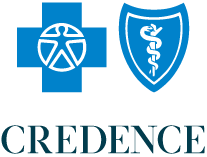Each year, it’s important to make a visit to see your Primary Care Physician (PCP) for any routine and preventive medical care. But seeing your PCP regularly is more important than you might think.
Not only is your PCP responsible for coordinating your healthcare—including providing referrals to specialists and hospital admissions as needed—but each visit can be a guidepost in pursuing your happiest and healthiest life possible. So next time you’re due for a visit, ask yourself these seven, essential questions and feel more confident that you’re taking charge of your healthcare:
What’s the reason for your visit?
First and foremost, it’s important to make sure you’re visiting the right provider for the right reasons. A PCP should be seen for routine care, such as a wellness visit or a minor injury or illness, not a life-threatening or urgent emergency. In the case of an emergency, please visit your nearest ER.
If there are multiple issues or symptoms, we recommend jotting down a quick list to share with your PCP. Sometimes even the smallest of symptoms can be a sign of more serious health issues.
Will your visit be considered in-network?
A network is a group of doctors, hospitals or other healthcare providers that accept a certain healthcare plan from your insurance company. Choosing an in-network PCP ensures that you’ll receive a higher level of benefits coverage.
No matter your healthcare plan, you could significantly save on potential healthcare costs just by making sure your treatment and your provider are both in-network. You can review your benefit booklet for more information regarding your coverage.*
Are you able to use your HSA or HRA to help pay for the visit?
If you’re eligible for a Healthcare Savings Account (HSA) and have funds already set aside in the account, it’s essential to bring your card to each visit. Because plans eligible for HSAs don’t include some reduced healthcare costs such as a copay, you may be required to pay the full amount due at your visit for the care you received—but, of course, you can use your HSA card for almost all of these medical costs.
On the other hand, if you’re taking advantage of your employer-offered Health Reimbursement Account (HRA), you can use the funds for eligible medical expenses. It’s important to know that your HRA can only reimburse you for qualifying healthcare-related expenses—but those expenses are often wide-ranging to include the majority of your annual medical needs. Common eligible expenses include deductibles, coinsurance and copays.
Could the visit take place virtually?
If there’s no physical need for visiting in person, such as a mild cold or sinus infection, a virtual visit may save you the trip. We recommend verifying that your healthcare plan covers virtual visits before scheduling the appointment.
Are you taking any medications?
Be sure to bring them with you or have detailed information handy so your PCP can take note of the names and dosages you are prescribed, especially if the prescriptions are from different doctors.
Pro tip: It can be helpful to pull up your formulary—the list of prescription drugs your healthcare plan covers—online prior to your appointment. So, if your PCP suggests a particular prescription at your visit, you can quickly check if it’s covered by your healthcare plan. If it’s covered, you could save big when paying for your prescriptions. If it’s not covered, it’s worth asking your doctor for an alternative treatment option during your visit. You can find Credence’s full list of prescriptions covered here.
Are you familiar with your full health history—including your family’s history?
Recalling your full health history is not always an easy task. That’s why we believe it’s best to map out any prior visits, conditions and/or key dates—such as the date of last menstrual cycle or any recent procedures—ahead of time. It’s also important to check in with your family on any conditions you might need to share with your PCP, such as a history of cancer or heart disease.
Pro tip: Keep a medical log that includes all of this information in one secure place. Bring it along to your next appointment and write down your medical notes and dates immediately after. Next time, you won’t have to worry about remembering a thing.
Can you provide any information prior to the visit?
When preparing for your appointment ahead of time, we recommend asking your PCP’s office if there’s any paperwork you can fill out prior to your appointment or if there’s any medical information you can provide beforehand. Being proactive here can save you valuable time during check-in and help the process run smoother from the start.
*Benefits are subject to the terms, limitations and conditions of your plan.
